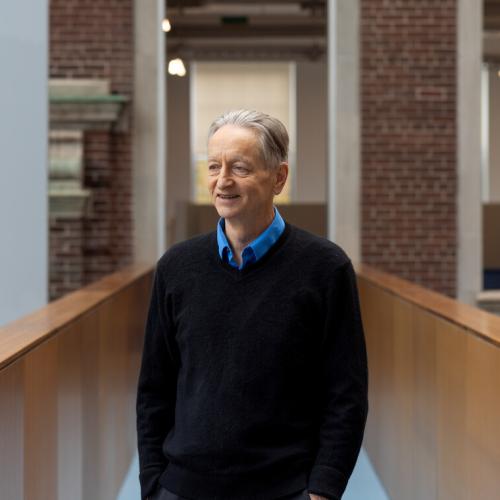Join fellow U of T alumni and friends for a thought-provoking and inspiring presentation

- Networking & Presentation
- Q & A Session
This event is sold out. We sincerely apologize for any inconveniences. If you would like to be added to the waitlist, please contact us at regional.programs@utoronto.ca.
Julia Knapp
Executive Director, Alumni Engagement
University of Toronto
cordially invites University of Toronto alumni and friends to attend a dinner reception, featuring a special presentation:
The Hidden Cost of Stress and the Surprising Role of Sensation in Living a Fulfilling Life
by
Norman Farb
Associate Professor of Psychology
Department of Psychology
University of Toronto Mississauga
How do you make a change in your life when the tools you used to rely on start letting you down?
Whether we’re struggling with a problem, a bad habit, or life in general, we often think we need to “tough it out” or “try harder.” Yet, this approach can reinforce the very patterns that keep us stuck.
Join us for a compelling talk with Professor Norman Farb on how the science of sensation can help us handle stress and flourish in the face of life’s challenges.
Drawing on insights from his new book, Better in Every Sense: How the New Science of Sensation Can Help You Reclaim Your Life, discover how engaging the brain’s sensory network and using practical techniques like “sense foraging” can boost resilience, well-being, health, and creativity—for a richer, more fulfilling life.
Note: This presentation will be preceded by an information session for prospective students interested in learning more about the University of Toronto. For more information on the session, please email future.students@utoronto.ca. Feel free to share this invitation with anyone who may be interested in this opportunity!
ABOUT THE SPEAKER
 Professor Norman Farb studies the neuroscience of human identity and emotion, with a focus on how cognitive biases shape emotional reactions that determine well-being. For example, some people seem to shrug off stressful encounters, whereas others cannot let them go. What distinguishes these people? Is it something about how they construe themselves and the world? What consequences do habitual patterns of self-reference have for well-being? How can we measure seemingly ephemeral constructs such as self-reference and emotion? To these ends, his work employs multiple levels of analysis, including first and third-person qualitative reports, behavioral task performance, physiological responses, and patterns of neural activity and connectivity derived primarily through functional MRI. In his research, he is particularly interested in how cognitive training practices such as mindfulness meditation foster resilience against stress, reducing vulnerability to affective disorders such as depression.
Professor Norman Farb studies the neuroscience of human identity and emotion, with a focus on how cognitive biases shape emotional reactions that determine well-being. For example, some people seem to shrug off stressful encounters, whereas others cannot let them go. What distinguishes these people? Is it something about how they construe themselves and the world? What consequences do habitual patterns of self-reference have for well-being? How can we measure seemingly ephemeral constructs such as self-reference and emotion? To these ends, his work employs multiple levels of analysis, including first and third-person qualitative reports, behavioral task performance, physiological responses, and patterns of neural activity and connectivity derived primarily through functional MRI. In his research, he is particularly interested in how cognitive training practices such as mindfulness meditation foster resilience against stress, reducing vulnerability to affective disorders such as depression.
Have questions about this event?
Contact Alumni Relations at regional.programs@utoronto.ca
This event is part of
Lectures & workshops
The University of Toronto is full of brilliant minds engaging with ideas that are transforming our world. Be part of this community of discovery.
This event is part of
Global Events
Bring the University of Toronto wherever you are, find global events and connect with alumni around the world.
This event is part of
U of T Where You Are
U of T’s popular lecture series comes to where you live and work, in cities around the world. Stay informed, get inspired!








